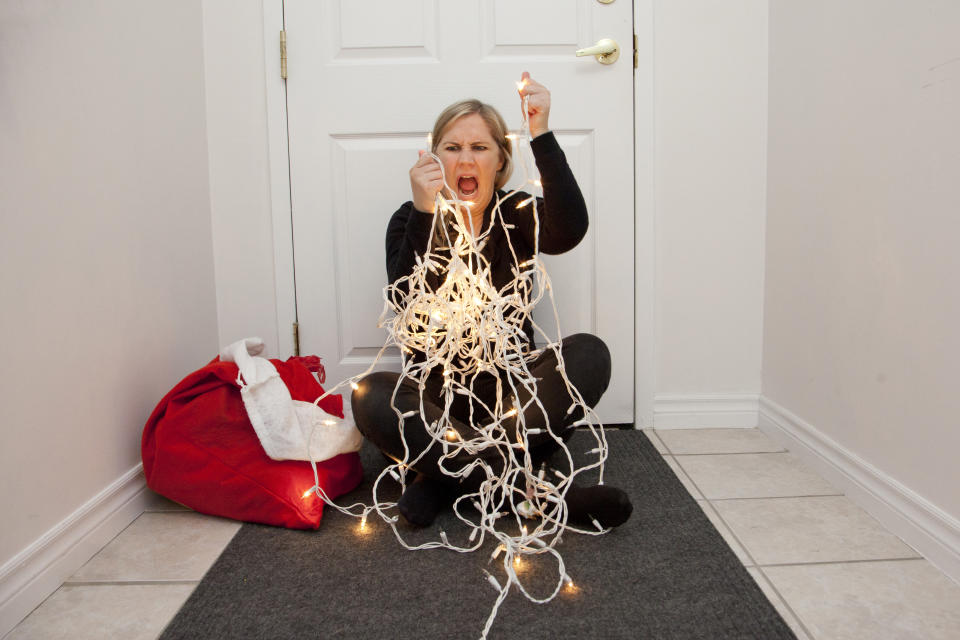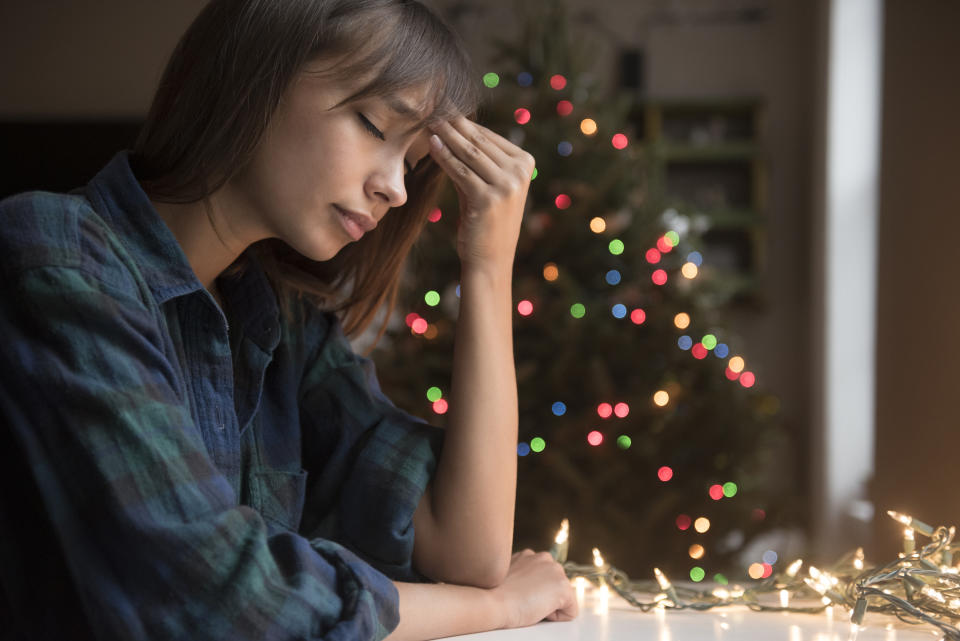How to stress less during the festive season
It’s no real surprise that while the festive season is a time of family, fun, and food, for many of us, it ends up being an extremely stressful time of year.
And with the ongoing coronavirus pandemic continuing to hang over our heads, there is no doubt stress levels this year are probably higher than ever.

That’s particularly worrying when you think of how stress is actually impacting our health. According to one 2019 study, the Christmas season can be so bad for some, it actually leads to an increase in heart attacks.
Taking the pandemic out of the equation for a moment, human behaviour expert Dr John Demartini believes holiday stress can often be self-imposed and come from feelings of expectation and other negative emotions.
And that kind of stress can have a huge impact on our bodies.
“Stress can run our immune system down, lead to inflammation and raise our blood pressure,” Dr Demartini tells Yahoo Lifestyle.
“It can also create muscular tension, constrict certain arteries, lead to cardiac arrhythmia, and disturb our microbiome and neurochemistry.”

He says that during the Christmas season our normal expectations can sometimes be elevated to the point of becoming a bit unrealistic. That is why when our expectations of ourselves can’t be met it leads to negative emotions like anger, resentment, guilt – all culminating in extra stress.
Because of this, Christmas isn’t always a happy time for everyone. However, with careful planning, preparation and budgeting, Dr Demartini says you can be better equipped for a happier time.
Schedule in time for yourself
While this many end up being something imposed on you as a result of the current NSW coronavirus outbreak, Dr Demartini suggests, taking time for yourself doesn’t need to be a bad thing.
Importantly, try not to say ‘yes’ to everything – only commit to the time you actually want to spend with people and be specific about your availability.
“There is nothing wrong with telling people ahead of time that you’re planning to drop by and only stay for an hour, or even less,” he says. “Fill your day with inspiring stuff, don’t just commit to other people’s plans. You’ll enjoy the season a lot more.”
Set basic rules
If you have family coming to your home at the holidays, it will make things much easier for you if you let them know what the rules are in advance.
“Setting basic rules – such as take shoes off at the door, no political conversation, everyone shares in the clean up – can increase the fun factor at Christmas by reducing aggravation.”
Prepare for awkward conversations
Christmas might be considered a time to spend with family, but for many this aspect of the holiday season can sometimes be the most dreaded.
When catching up with family, having to deal with prying and personal questions about relationships, work and money can often be par for the course.
“The only solution here is to arrive at your event prepared for those questions,” Dr Demartini says. “Come up with a witty remark or two, so that you can greet the question without feeling pressured to divulge personal information.
“Or, list the benefits or the positives of this area of your life and lead the conversation toward those aspects – for example, you might not have a partner this Christmas, but it has freed you up for seeing lots of friends and given you greater flexibility with your plans.”

Stick to a sensible budget
Budget is a big contributor to stress over Christmas, as many of us will often feel the need to overspend or overcompensate. Throw 2020 on top of that and it’s not ideal.
Dr Demartini says we might underestimate the costs when deciding what we would like to buy for loved ones and then discover it is more than expected.
“Maybe we feel guilty that we have not communicated with them through the year and overcompensate by buying their affection,” he tells Yahoo Lifestyle.
Competition and the attempt to keep up with others who might be more well off is another danger. As well as impulse buying and not realising the overall costs of using credit cards.
“We can sometimes assume we have more money in reserve than we actually do, or we we will make more money shortly after the holidays to cover our possible overspending,” he says.
To combat this Dr Demartini says to be realistic about how much you want to spend on gifts and how much you can really afford.
Don’t exaggerate what is not within your means. Understand that sentimental gifts – such as a sincere letter of gratitude, or a hand-crafted item – can often be more meaningful than expensive ones.
Mental health support for yourself or a loved one can be found by calling Lifeline on 13 11 14, Mensline on 1300 789 978, or Kids Helpline on 1800 551 800. Online support is available via Beyond Blue.
Never miss a thing. Sign up to Yahoo Lifestyle’s daily newsletter.
Or if you have a story idea, email us at lifestyle.tips@verizonmedia.com.

 Yahoo Lifestyle
Yahoo Lifestyle 


